Main Menu
Latest Blog Entry
User login
The Importance of Posture
What is posture?

Correct desk posture
‘Good posture is the state of muscular and skeletal balance which protects the supporting structures of the body against injury or progressive deformity irrespective of the attitude in which these structures are working or resting.’ (1)
Why is good posture for athletes so important?
Having good posture means the body is aligned correctly and can work more efficiently.
Having bad posture means that the body is not balanced, therefore your muscles and joints have to work a lot harder because you are trying to align AND move accordingly for your sport.
Why is bad posture so common and how can it affect me?
Lifestyle has changed everybody’s posture dramatically. Adults and children will spend the majority of their day in a seated position i.e. at work hunched over a desk or computer, at school slouched in the chair or again over a desk and driving or being driven.
You will see a lot of bad standing positions too. It’s quite common to see young people shifting their weight onto one leg when standing too. Our bodies are active when we stand, not resting, the muscles should be working to keep our bodies upright. When we slouch we are ‘hanging’ off the joints.
As stated above, bad posture means our bodies have to work harder than usual in any activities we do. It can also cause chronic aches and pains and can lead to injuries in sports because the body isn’t efficient.
Two types of ‘bad’ postures
Lordosis
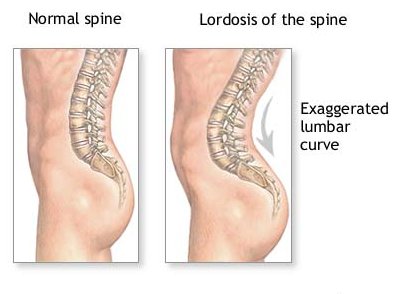
- Exaggerated curve in the Lumbar region of the spine (bottom sticks out, stomach sticks out)
- Caused by tight hip flexors – too much sitting – weak abdominals – relaxing these muscles when sitting rather them using them to support the spine.
- Stretch hip flexors to increase length. Strengthen stomach muscles (sit up tall as well). (2)
Kyphosis
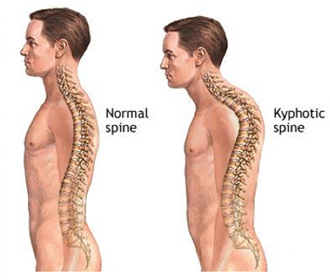
- Exaggerated curve in the Thoracic region of the spine (hunched back, head leans forwards).
- Caused by sitting like this at desks/ computer, driving/texting. Results in weak upper back muscles due to being overly stretched and tight chest muscles due to no stretch given in this posture.
- Stretch chest muscles. Strengthen upper back muscles. (3)
Can some sports cause bad posture unintentionally?
Take a look at gymnastics for example. Their common posture is more towards Lordosis. This posture is ‘practiced’ a lot i.e. after landings and during dance on the floor.
Also, due to their flexibility, a lot of gymnasts will stand badly i.e. bowed or locked out legs and flexible lumbar region of the spine which emphasises the Lordosis posture.
Gymnasts will have trained early (early specialisation) causing their bodies to only know that way of moving, rather than trying out a lot of different sports and allowing their bodies to balance out.
Golf also repeats the kyphosis posture too, standing with a ‘hunched back’ before swinging the club, although keeping a straight back before is ideal.
Also, golf is very one sided, so there will be an in-balance due to this e.g. if you stand with your left foot at the front, your right side will be stretched after hitting the ball where as your left side won’t.
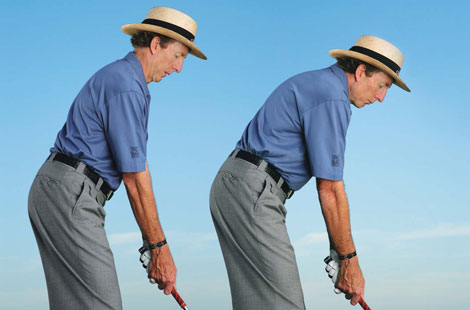
Summary
So as you can see, lifestyle really affects our posture.
Correcting it early on in life and just being aware of it as often as possible will help athletes bodies become a lot more efficient.
This will transfer into their training and games/matches.
Sit up and stretch if you are sat for long periods of time, try standing on both legs rather than shifting your weight onto one leg, and stand tall as well. All these will help and eventually become automatic for you.
This video shows you how to work on the 3 uncommon postures:
It might help you to relax.
Further reading:
- 8 Tips on how to move like an athlete
- How an athlete screening helps prevent injury
- Flexibility training
Gemma Robertson
References
1.http://www.pt.ntu.edu.tw/hmchai/Kines04/KINapplication/StandingPosture.htm#Definition)
2.http://footstrikescience.wordpress.com
3http://www.spirehealthcare.com/roding/mr-ben-okafor/spine-conditions/kyphosis/)
Client Testimonials
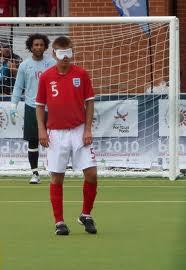 Robin Williams GB Footballer Paralympian
Robin Williams GB Footballer Paralympian
I have been training with James for over four years now and firmly believe he has played a key role in my transformation as an athlete and therefore as a footballer. It’s fair to say I was in poor condition in various aspects when we first met, however, James’ ability to focus on the most important things and eliminate the baggage from training has enabled me to develop rapidly, having missed selection for the 2009 European Championships I am now a regular in the starting lineup.
More


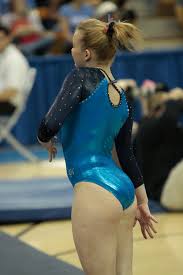
Comments
As always simple, clear and practical instruction. I will get out my inversion boots once again and try those moves of combined arm and legs moves. I can also get the kids to use the wall bars for the extension exercises from hang. Thanks James.
They will make your back feel completely different Mark.